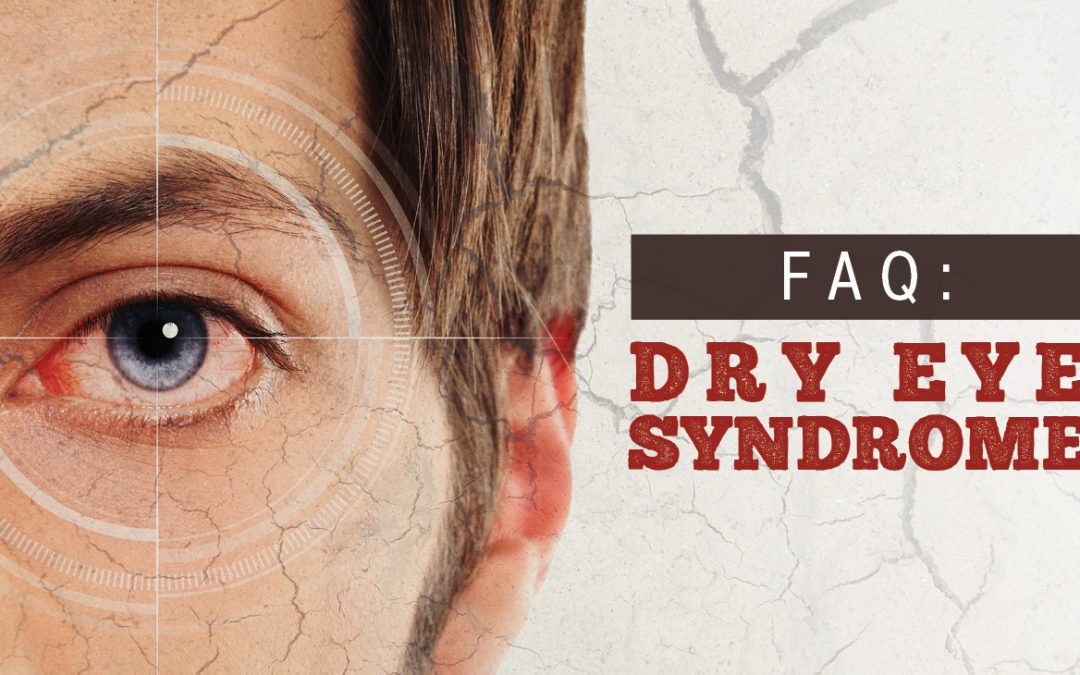What is dry eye syndrome?
Dry eye syndrome is caused by your eyes not producing enough lubricant to keep the surface of your eyes moist. You may experience a burning and aching sensation, heavy and itchy eyes, sore and dry sensation, and blurred vision. Dry eye syndrome is a common eye condition, and if you are a female, aging, and use the computer often, you are at a higher risk.
What causes it?
So what exactly causes dry eye? Your eye’s tears contain three components: an oily component, a water component, and a mucous-like component. Each of the three plays an essential role in helping the tears in your eyes from evaporating too quickly. A problem with any of the tear components can result in dry eye syndrome.
Many factors can increase the chances of developing dry eye. If you use a computer, it’s normal not to blink as much, which leads to more of the liquids in your eyes evaporating, increasing the risk of developing dry eyes. You are also more likely to develop dry eye after the age of 50.
Another factor that increases the risk of developing dry eye syndrome is heavy use of air conditioning and forced-air heating because they lower the amount of humidity in the room, speeding tear evaporation. Smoking also causes various problems for the eyes, such as dry eye, macular degeneration, and cataracts.
How is it treated?
If you believe that you have dry eyes, contact your eye doctor. Your eye doctor will look at your medical history to see if medications or environmental factors may be making your eyes worse. Your doctor may also look at your eyelid structure and evaluate your blinking pattern to see if it is contributing to your dry eyes.
There is treatment available for dry eye syndrome, and your doctor may suggest using artificial tears while also implementing small lifestyle changes, such as taking breaks from using a computer.
If you have any of the symptoms of dry eye syndrome, contact our office today! We are ready to answer all of your questions and help you with all of your vision care needs.


Recent Comments